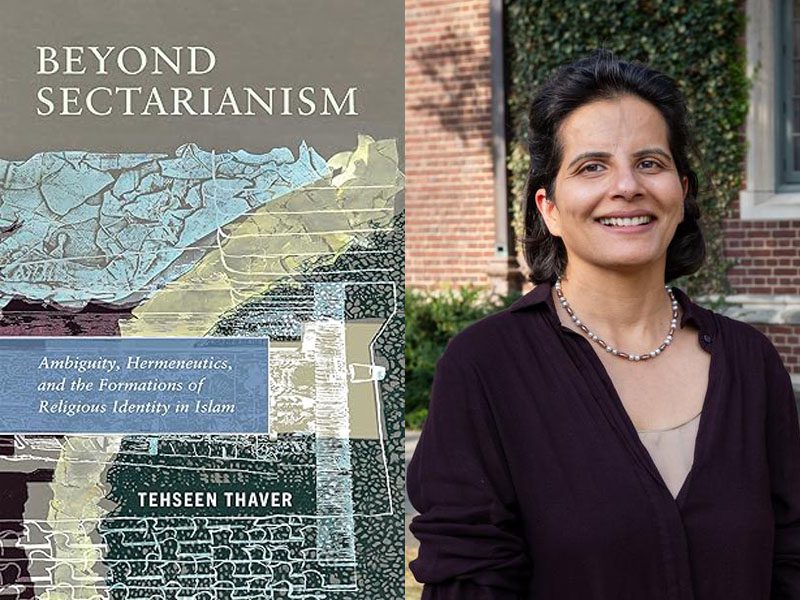Tehseen Thaver is an assistant professor in the Department of Religion. Her latest book “Beyond Sectarianism: Ambiguity, Hermeneutics, and the Formations of Religious Identity in Islam” was published in May 2024 by UPenn Press.
How did you get the idea for this project?
The field of Qur’anic Studies within the study of Islam and religion tends to be highly specialized and inward looking. I wanted to write a book that situates the study of the Qur’an squarely within the study of the humanities, and in fact attempts a substantive conversation between the “Western” and Muslim humanities. Another impetus for this project comes from the goal of approaching minority traditions, such as that of the Shi‘i (one of the two major sects in Islam) Qur’an commentary tradition on which the book focuses, on their own terms rather than through predictable and predetermined sectarian assumptions about what they must look like or focus on. My book tries to open avenues for studying Qur’an commentaries beyond the confines of sectarian driven questions, assumptions, and expectations; thus the book is called Beyond Sectarianism.
How did the project develop or change throughout the research and writing process?
The early years of this project were focused primarily on philological work and analysis, with the main aim of making an original intervention in Islamic Studies. Over the course of researching and writing this book, I came to realize that it holds inviting possibilities of encompassing and bringing together multiple fields and methods including textual analysis, intellectual and political history, literary studies, medieval studies, and of course religious studies. I have thus tried to write a book that interests and is accessible to an expanse of scholars in the humanities.
What questions for future investigation has the project sparked?
My next book project examines the first Qur’an commentary in the Persian language composed by a Shi‘i scholar, (a twelfth century scholar called Abu al-Futuh Razi (d. 1157) from what is present day Iran). This project continues my interest in exegetical texts on the Qur’an. But it is also very different from my first book in that it explicitly focuses on how Qur’an commentaries become part of Muslim ritual life in spaces such as mosques and seminaries through oral exegetical sermons that seek to evoke from their audiences distinct affective responses such as delight, awe, and wonder.
Why should people read this book?
For three reasons: a) view an intimate portrait of a complex and fascinating tradition of wrestling with the difficulties and ambiguities of divine scripture, b) open the possibility of rethinking and redressing dominant sectarian assumptions about Islam and religion in the contemporary world through a close look at a premodern tradition that challenges some of those assumptions, and c) explore the often puzzling yet delightful interaction of the Qur’an with literature, poetry, history, and politics.
















